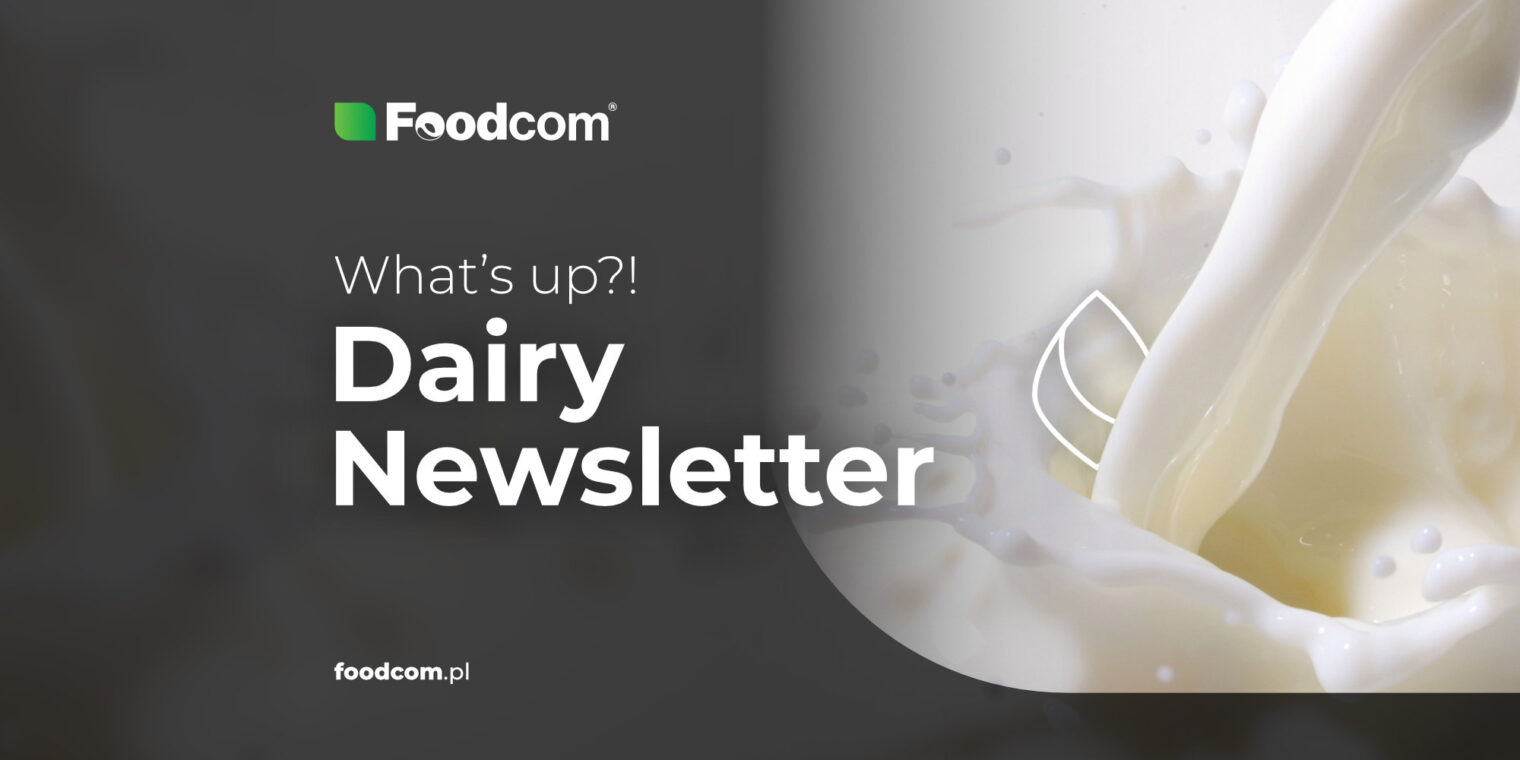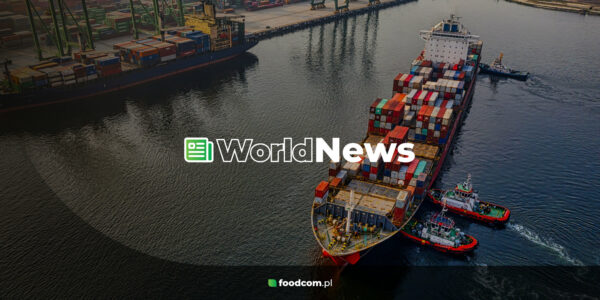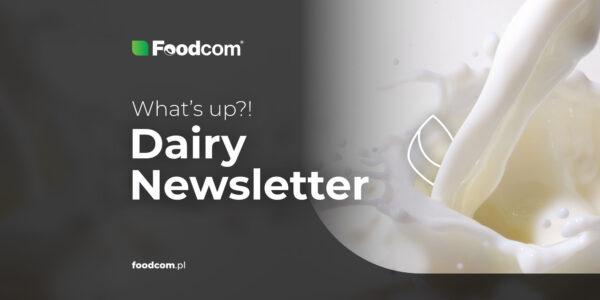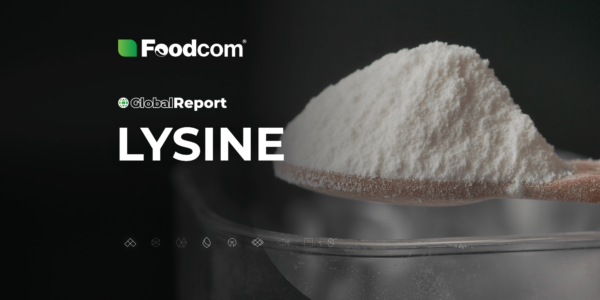Hello Partners!
Here is our weekly review of Dairy products and news that brought a lot of new information about events in the market. In addition to these exciting events, this time we have also prepared one for you.
There is a big premiere happening at Foodcom S.A. this week. We cannot say more, but we can invite you to follow our website carefully.
Changes, changes, changes!
Continue reading to learn about this week’s market insights.
With us, you’ll never miss a thing!
Butter
For another week in a row, Butter is under price pressure. Although the raw material (Cream) is not abundant in the market, which is typical for this time of year, producers are struggling more with the lack of demand, which leads to a decrease in prices. At this point, prices do not start at 3, and the question is whether the price pressure will force it.
Skimmed Milk Powder
One can really feel the vacation season is on the market! Most buyers have already contracted orders for Q3 2023, and discussions are currently underway for Q4 and Q1 2024 pricing. It is quite possible that a new tender for Onil Algeria will be issued, hopefully clearing inventories and leading to a stabilization of powder.
Gouda/Edam
Cheese prices have stabilized and producers are calm because they continue to process current contracts. We hear voices from the market that now it’s hard to find a product at competitive prices. Contact us for the best deals!
Whey Protein Concentrate
A lot of buyers delayed the confirmation of their orders, hoping for a lower price. However, when they all came to the market simultaneously and the availability of the raw material turned out to be limited, most European WPC producers said that they were sold out. This automatically led to quite significant price increases.
Cream
The price of Cream has dropped across Europe, demand is low, and the vacation season for traders is underway. The price of Skimmed Milk Concentrate, after several stable weeks, has fallen sharply, even to €1800/ MT. Prices for Milk have also dropped, but not as much as those for Cream and SMP.
What else?
Europe
One of Ireland’s largest milk processors is holding milk prices for June deliveries
Lakeland Dairies has confirmed it will maintain its milk price for the second month in a row. It is the first processor to confirm its price in the Republic of Ireland. Milk production in many of the major dairy regions remains above year-ago levels, although the pace of growth has slowed, according to one of Lakeland’s representatives.
British Dairies record price holds and rises for the first time in months
After more than six months of price cuts, several dairy cooperatives have announced they will maintain or increase milk prices, raising hopes of long-awaited stability for British farmers. Arla and Payne’s announced that their prices for July will remain unchanged. The majority of companies also said they will maintain prices for August. Only Barber and Saputo have decided to increase prices.
Arla and Blue Ocean Closures are working together
Danish dairy company Arla Foods has entered into a formal partnership with sustainable startup Blue Ocean Closures to develop fiber-based closures for Arla’s milk cartons. This could be the first fiber-based cap ever introduced to the milk carton market.
The Americas
A cheap dollar leads to more milk imports in Mexico
As the dollar exchange rate has fallen 15% over the past year, from 19.48 to 16.54 pesos, it has become cheaper for companies, including state-owned Liconsa, to import powdered milk, forcing the domestic dairy industry out of the market. Before the fall of the dollar, milk products had been bought from domestic producers given the high prices of imported milk. But by the end of 2022, imported milk powder was already cheaper due to the exchange rate, and purchases of domestic milk fell significantly.
In Peru, the price of feed tripled, influencing the cost of milk production
The increase in the price of feed for cows threatens milk production. This problem is already occurring in the third milk-producing region of the country. Feed has become more expensive due to El Niño and there has been no rain in the mountains, says one of the representatives of the Regional Milk Council. The shortage has caused the price of a kilo of feed to triple, rising from 18 cents to about 32 cents. As feed costs have risen, so have production expenses, up to 40% per liter of milk.
The pharmaceutical giant turns to Dairy sector to reduce carbon emissions in U.S.
British pharmaceutical company AstraZeneca is partnering with Massachusetts-based Vanguard Renewables. The collaboration aims to use biogas to generate heat and electricity at all its research and manufacturing facilities in the U.S. by the end of 2026. The U.K.-based company already uses manure from dairy cows and food waste to reduce its reliance on natural gas and cut carbon emissions.
Asia & Oceania
The Japanese government has begun to promote the consumption of milk and other dairy products
All this is aimed at boosting demand and helping dairy farmers at a time when they are struggling with high production costs. One pillar of the strategy is to raise the profile of Japanese dairy products abroad in hopes of creating export markets. To achieve this, they have begun serving food made from dairy products to visitors at Japanese airports and tourist attractions. An initiative has also been launched to offer milk at discounted prices in children’s canteens to boost domestic demand.
Israel lifts customs tax on imported milk
The Country’s Finance minister said he is lifting the 40% customs duty on imported milk for three months to combat a shortage in supermarket chains. Milk production in Israel is subject to centralized planning and state-approved prices. Because the state sets milk prices, dairies are reluctant to increase production and prefer to focus on selling dairy products that are not controlled by the government, leading to milk shortages.
Danone is going to sell its Russian assets?
Russia’s largest dairy producer, EkoNiva, is considered a prime contender to buy Danone’s Russian operations. The French dairy company wants to leave the country, according to Russian news agency Prime. It has been reported that the price for Danone’s Russian assets is around 1 billion euros. However, the actual price discussed with EkoNiva could be as low as 360 million euros, Prime reports.








